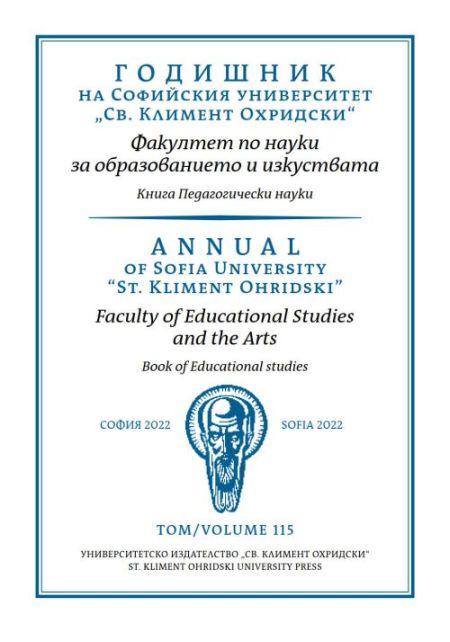STEM за деца от предучилищна възраст и за техните родители ParentSTEM. Европейски проект по програма Еразъм+ 2018-1 TR01-KA203-059568 http://parentstem.kku.edu.tr/project-info/
STEM for Pre-Schoolers and Their Families ParentSTEM. European Erasmus+ Program 2018-1 TR01-KA203-059568 http://parentstem.kku.edu.tr/project-info/
Author(s): Author Not SpecifiedSubject(s): Social Sciences, Education, Preschool education
Published by: Софийски университет »Св. Климент Охридски«
Summary/Abstract: Today many governments, researchers and educators have increasingly focused on using high-quality Early Childhood Education (ECE) programs as an effective tool to help children build a strong foundation for life skills and therefore, better life trajectories. After a decade of intense focus on the development of literacy in early childhood programs, attention is now shifting to the importance of early learning in mathematics and science. STEM (Science, Technology, Engineering and Mathematics) education integrates learning in both mathematics and science disciplines and includes connections to technology and engineering; and STEM education has become a focus of attention. Popular and common sense about STEM is that STEM education involves the integration of science, technology, engineering, and mathematics concepts in the curriculum. More detailed definition of “STEM education is an interdisciplinary approach to learning where rigorous academic concepts are coupled with real world lessons as students apply science, technology, engineering, and mathematics in contexts that make connections between school, community, work, and the global enterprise enabling the development of STEM literacy and with it the ability to compete in the new economy”. The overall goal of this project is to increase family involvement in STEM education process of early childhood students specifically coming from low socio-economic status. Through this project and its intellectual outputs, early childhood teachers’ competencies for encouraging low income families to involve in their children STEM education process will be increased and extended. Through involvement of low-income families in STEM education process, children belonging to disadvantage groups would have better access to STEM education starting from as early as Pre-K (kindergarten) level. Although this project proposed increase of low-income family involvement in their early childhood children’s STEM education process, it also aimed to extend conceptual and pedagogical knowledge of early childhood teacher on STEM from a family involvement perspective. During the project, national as well two international teacher trainings were held (in Manresa and Barcelona, Spain and in Halle, Germany). PhD and bachelor students from the Faculty of Educational Studies and the Arts were also actively involved in the project.
- Issue Year: 115/2022
- Issue No: 1
- Page Range: 231-235
- Page Count: 5
- Language: Bulgarian

